SFAI recently interviewed Stacy Scibelli about her experience as a resident at SFAI during the months of February and March — prior to, and post, the imposed COVID-19 restrictions — here’s what she had to say.
The transcription of this oral interview has been edited for clarity and brevity.
Your February Process presentation at SFAI was very inspiring about how your work relates to the 2020 theme of Labor, the fashion industry, and capitalism. For those who didn’t participate in that, can you talk a bit about your art practice, in particular the work around the theme of Labor?
I spoke about a project I call Garb, a series of modular textile units that can be assembled in a variety of ways, which is really outside the regular canon of clothing. The intent is to break our consumer habits of encouraging and supporting fast fashion and mass-produced objects, and to consider the invisible labor that goes into the objects that we put on our body.
Garb comes at the problem of labor from the underbelly of the beast, criticizing our habits of consumption, trying to get us to break those habits through play and innovation, and encouraging the understanding that these practices are about more than just consumption.
I think the fashion industry facilitates poor labor practices because of the tyranny of scale, which again all hinges on our habits of consumption. Most of the objects that we consume as clothing are created with underpaid labor and unsafe working conditions. I believe that the responsibility of changing that, in part, must start with the consumer.
You have been very busy making masks, which feels heroic right now. And the ability to design and sew is very highly valued at this moment. Perhaps that is also unprecedented. How has this crisis affected your artistic practice? Does it change the ways in which you are thinking about the theme of labor or the direction you’d like to take it, to take your practice?
Yes, I have personally committed to a lot of labor in making face masks recently, while in self-isolation at SFAI but I don’t really feel like it’s heroic. I do feel really grateful to have something to work on. I saw a lot of social media about needing to mobilize, and that people were needing masks. It’s been helpful to give me a purpose. The frustrations of politics right now, and the environment, and all these things that I’ve tried to wrap my brain around for a long time, have made me feel helpless and desperate. So being able to actually make something and feel like it’s helping has been really, really cool, but it’s also a little bit problematic. As you can imagine, this work is so very different from the Garb project – where each object is truly one of a kind. Making any object in mass quantity is a little uncomfortable for me.
I also think it is important to be cautious about the idea of heroism in this time. Skilled laborers are being called to action and are being asked for the donation of their time and resources. For some, it is possible to work for donation, but many people are out of work or school and would greatly benefit from some support for their time, materials, and labor. I would also like to mention that most of those skilled laborers are already undervaluedand underpaid, and are most likely women and people of color, disenfranchised people in already tenuous situations.
It wouldn’t be too hard to redirect some of the funds that are being funneled into oil and the airlines and corporations to individuals who are making things. I think it speaks (again) to this idea of mass production, and universality of objecthood, and how that makes us feel safe.
I hope that through this, there will be an emergence of some sort of ideal about skilled labor, at least in relation to mass-produced items such as clothing, a recognition that we actually have a lot of skilled artisans and craftspeople. We’ve gotten accustomed to relying on cheap labor from different parts of the world to produce these items, which allows it to be invisible—it also allows us (artists and craftspeople) to be cheap and unseen. But if we have to turn to more locally produced things, and more varieties of vendors to produce them, it’s possible it could create a good shift.
This is difficult for everyone, and art organizations like SFAI all over the world are trying to learn how to best support artists at this time. We would love to hear your thoughts on that!
You all (SFAI staff) have been heroes to me personally, I’m so grateful. It’s been so helpful and supportive to be able to hole up here—and generous. There’s food. There’s huge amounts of space. There’s energy. I don’t have to worry about anything. I have heard that SFAI might open the doors to some first responders. I think that’s so awesome.
There’s an opportunity for institutions to provide direct resources in a time of need. Organizations that do have funding are offering some grants to artists, but I think they need to incentivize the labor. Artists are masters of material and problem solving, we are super smart and think outside the box. We are showing up to help and are exercising ingenuity and resourcefulness, but a lot of artists work through social activism, and don’t normally get support. I really think that there are a lot more possibilities if resources can help facilitate process and mobilization, not just the traditional modes of art making.
You’re leaving SFAI soon, will you have an opportunity to continue the work you’ve been doing in your residency, or what’s next for you?
It’s a weird question because obviously no one knows what’s happening. I’m still going to be on the road, and at this point, I don’t know when I will have a studio next.
I’ve been thinking a lot about how to make education more accessible and encourage hard skills. Before coming to SFAI, I was teaching in community colleges, and I really miss that right now. I miss having the access to communities that really appreciate and utilize what they have learned. College teaching was really great for me, because there was a salary attached. I’m trying to figure out how to make a living and still provide accessible education outside of the institution, and how to make that part of my practice. I just feel there is a lot of opportunity for mobilization and for art to make a functional impact, so I think that’s where I’ll put my attention. It’s been really helpful to have you SFAI helping with that.
Now that we’ve been separated physically from each other, it does become harder to learn. But, you know, there’s a lot of technology available. My students were able to watch my tutorials, and they made the pattern themselves, just how I told them. And I was like, oh, maybe we don’t need all the things we think we need.
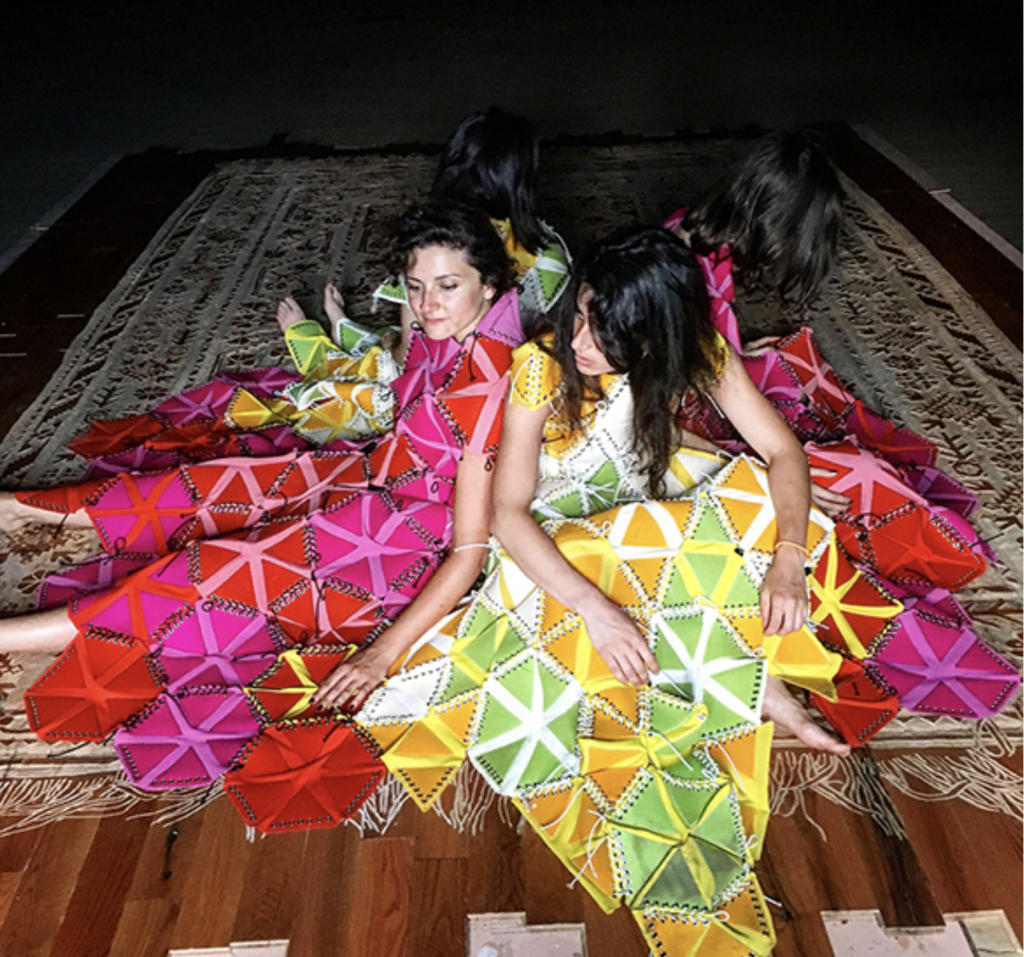
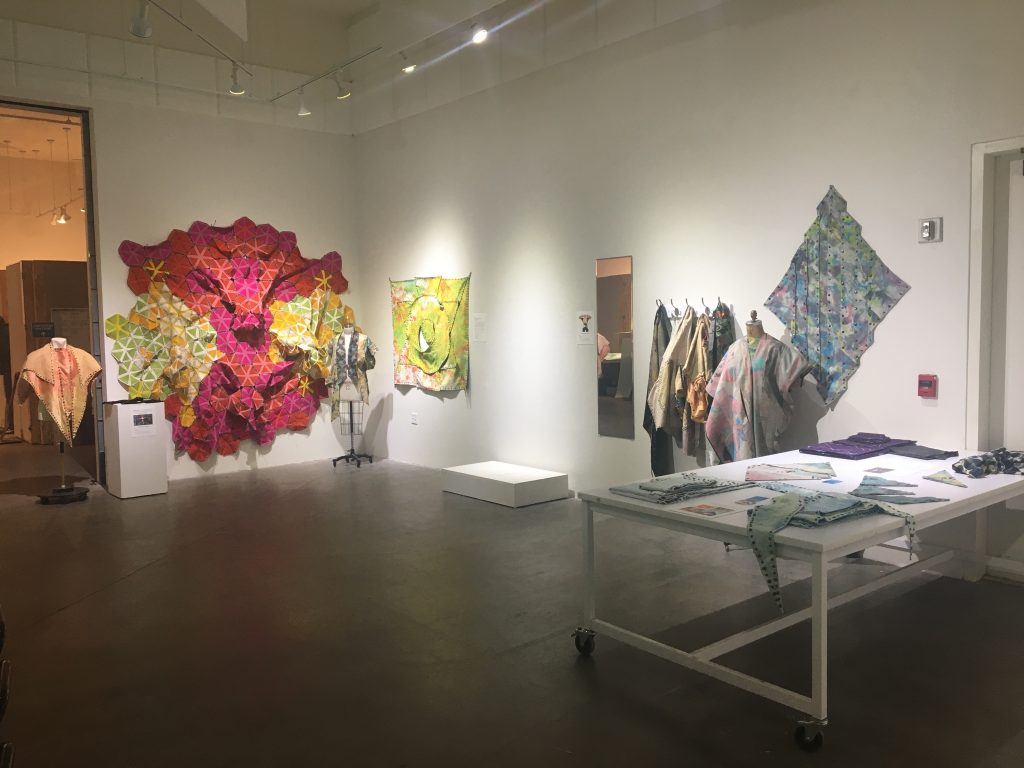
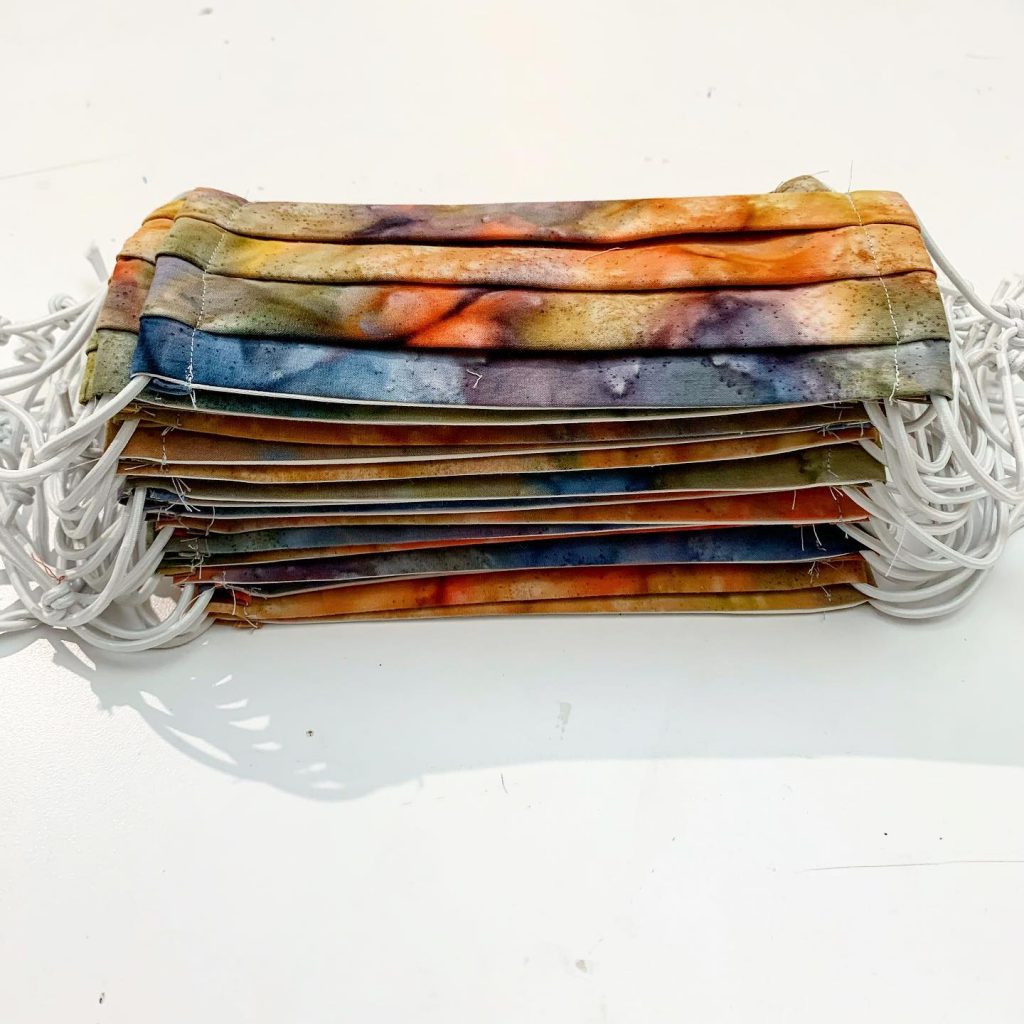
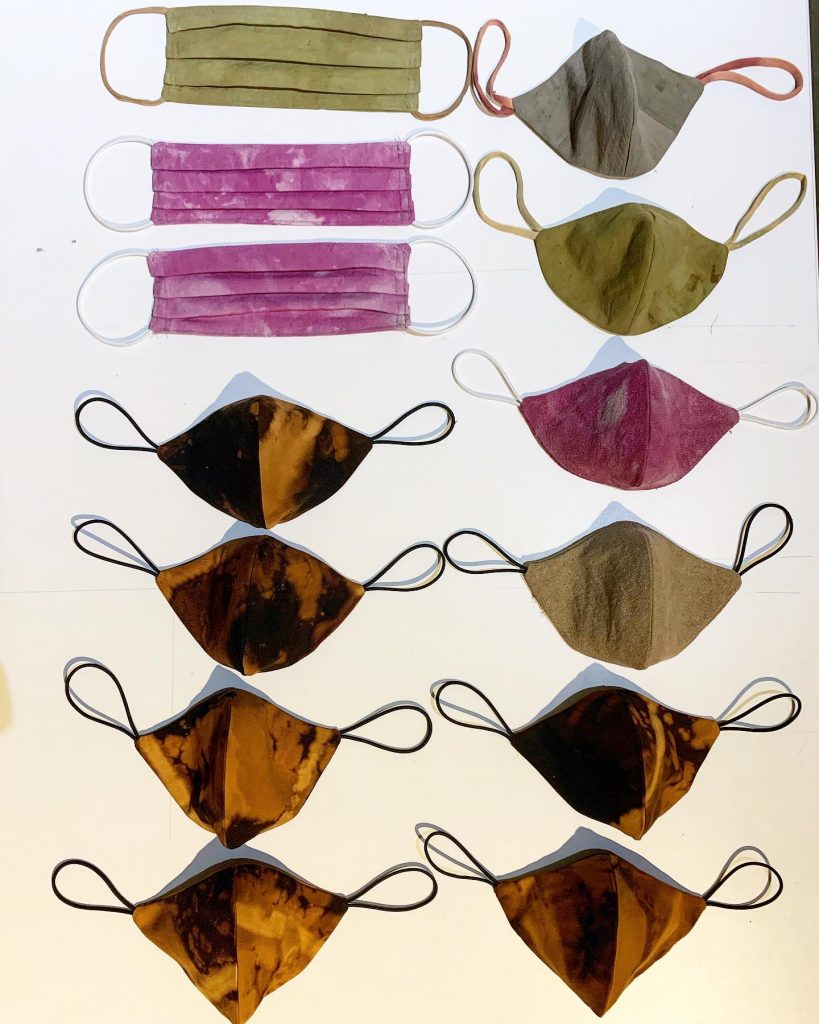
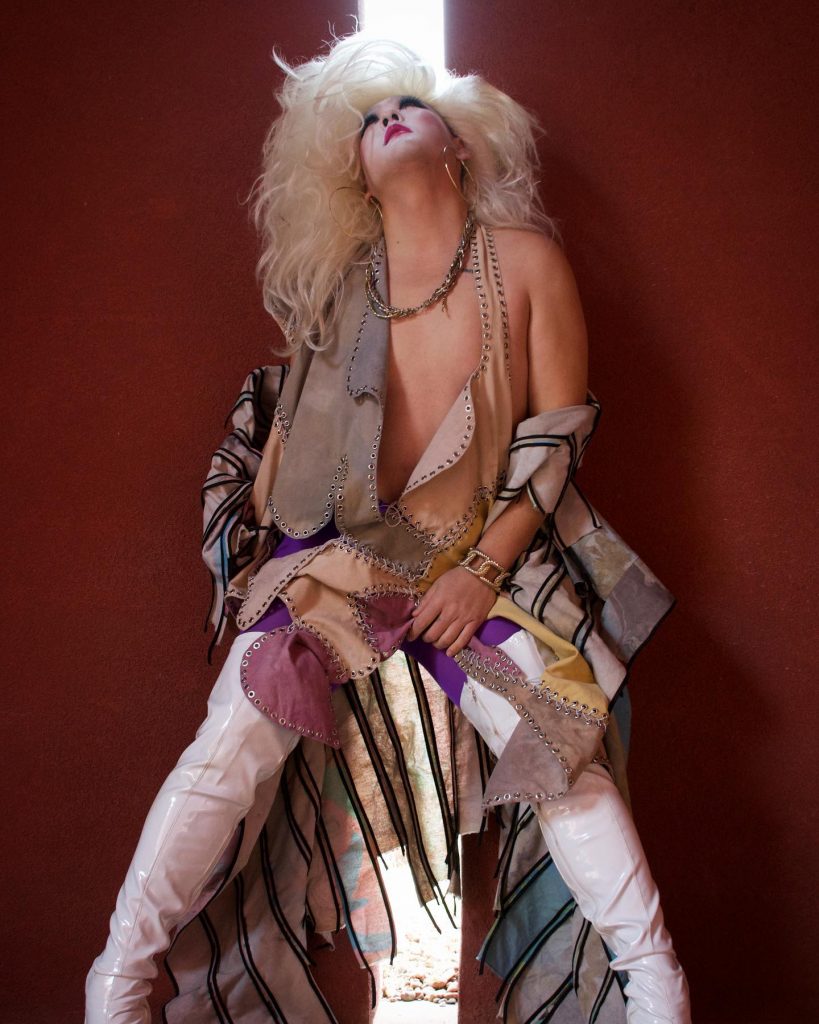
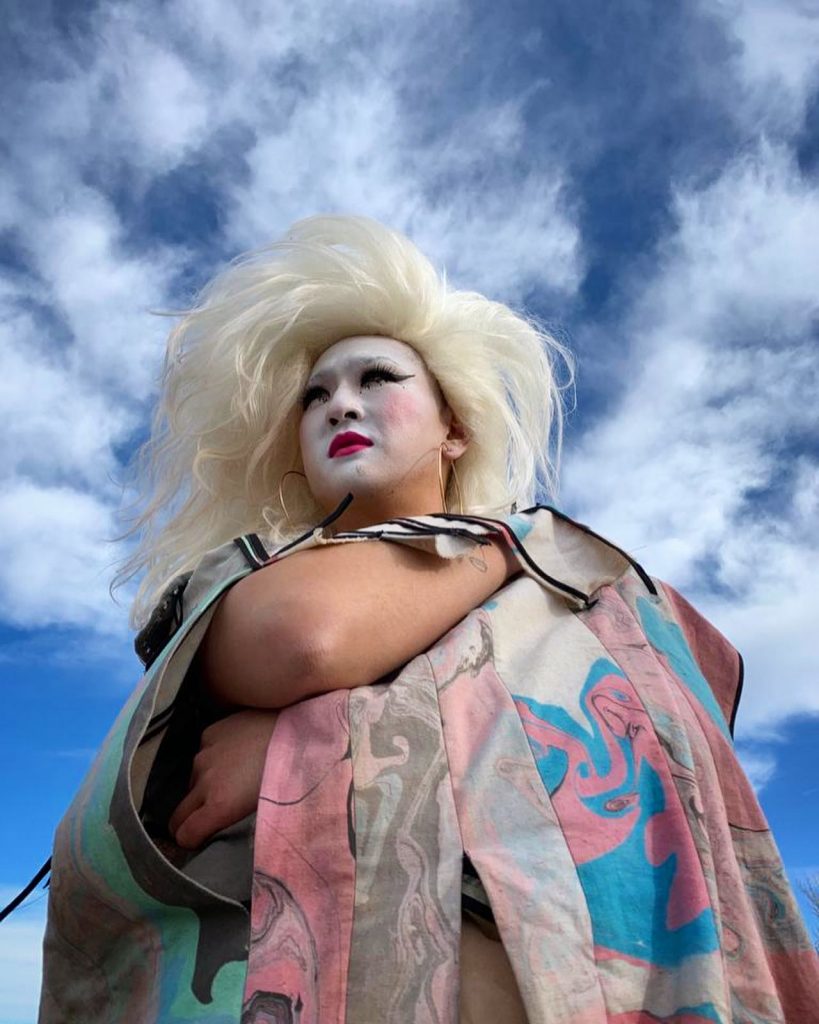
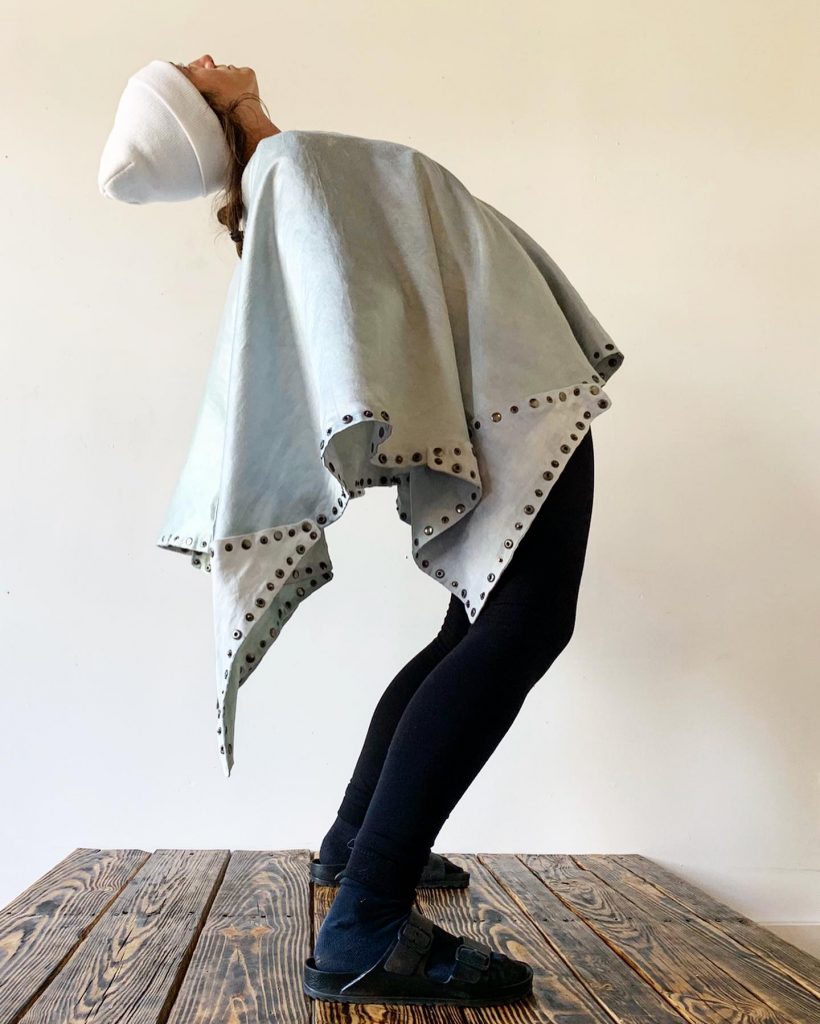
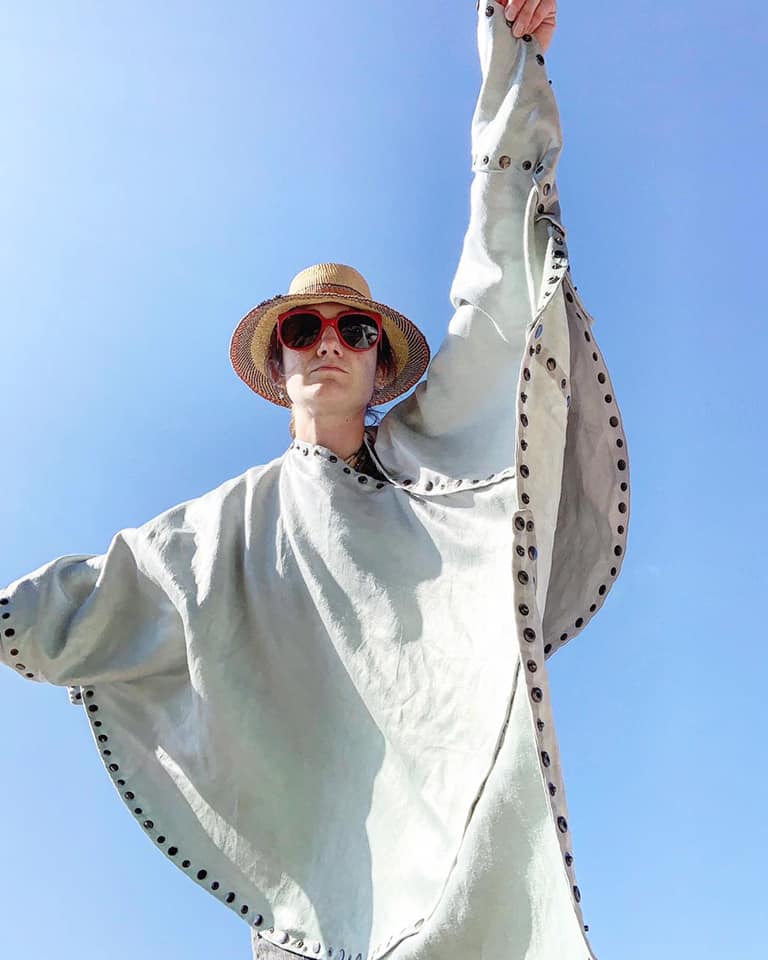

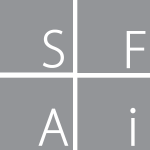 © Santa Fe Art Institute / Santa Fe, New Mexico /
© Santa Fe Art Institute / Santa Fe, New Mexico /